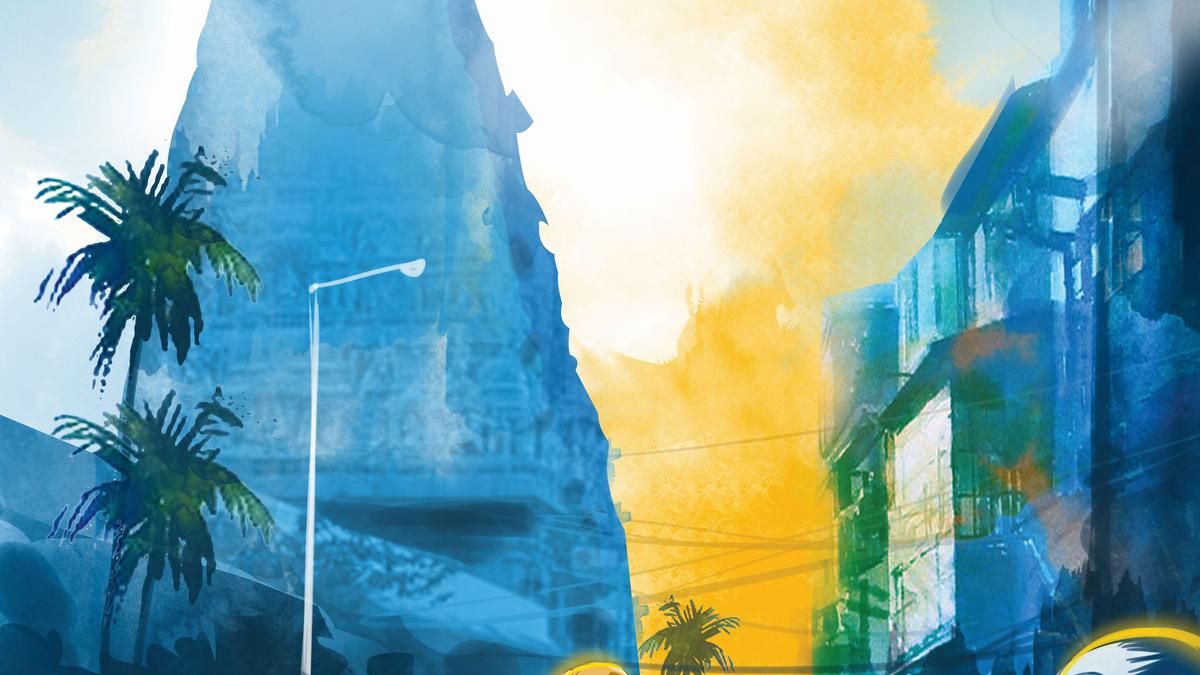From the streets of Saptasthanam in Thiruvaiyaru to the streets of Mylapore in Madras, morning processions during the Tamil month Margazhi were led by Papanasam Sivan, the only name that comes to mind when you think of Dhanur month Bhajanai.
Papanasam Sivan, originally known as Ramayya, lived a quiet, unobtrusive life.
Young Sivan’s devotion found a natural outlet in music, and he sang verses from Tevaram and Thiruvachagam in the temples he visited. After moving from Kerala to Tamil Nadu, he became fond of composing, highly influenced by Neelkantha Sivan and Konerirajapuram Vaidyanath Iyer. His first work was ‘Unnai Thudhikka Arulatha’ in Kuntalavaraali, which he composed in Tiruvarur.
His grandson Papanasam Ashok Ramani recalls, “He chose his posture or signature as ‘Ramadas’ – a portmanteau of his given name Ramayya and a tribute to his father Ramamritham Iyer.” After getting opportunities to write songs for films, he moved to Chennai.
In his Tevaram hymns, the great Saiva saint Tirugnana Sambandar saw God as his father. Similarly, Thirunavukkarasar looked upon the Lord as his master and Sundarar as his friend. He sang the glory of Lord Kapaleeswarar of the 24th Shiva Temple, Mylapore in Tevaram hymns in Thondai Nadu-Nadunadu region. Although it is considered a Paadal Petra Sthalam, the triumvirate of Carnatic music has not composed any song on this temple.
However, Sivan, who was affectionately known as Tamizh Tyagayya, demonstrated his adoration and devotion towards Kapaleeswarar and Karpagambal, the principal deities of the Mylapore temple, and treated them not only as deities but also as his best friends. Considered as. Dhanur Mass Bhajanai had a great influence on him and he wrote improvised songs on Karpagambal and Kapaleeshwar.
Many compositions like ‘Kapali’ in Mohanam, ‘Karpagambike’ in Bilahari and ‘Sadashiva Bhajanme’ in Thodi were composed during the Margazhi procession and Panguni festival.
‘Kadaikan Nokki’ and ‘Shambo Umapathe’ are the songs which he sang spontaneously in front of the deity. Interestingly, the magnificent ‘Unnai All’ in Kalyani was composed at Sivan’s residence. In the song he has seen Madurai Meenakshi, Kanchi Kamakshi and Nilayadhakshi as Karpagambal.
He wrote ‘Karunanidhiye Thaye’ to seek the blessings of Karpagambal during a Bhajanai procession in his early days. And, set it to Bauli, as it was a suitable raga to be sung early in the morning.
No December ends without ‘Karapagame’ in Bhajanai Madhyamavathi, a work composed especially for Madurai Mani Iyer. Ashok Ramani says, “Madurai Mani Iyer once said that this song can be sung during puja at home as it has powerful mantras and various names of the goddess.”
Once, singer Ramnad Krishnan visited Sivan’s residence and heard him singing Tyagaraja’s ‘Ninnu Vina’ in raga Navarasa Kanada, and was mesmerized. Sivan asks him to join Bhajanai the next day. Krishnan participated in the procession and requested Sivan to sing ‘Ninnu Veena’, but he spontaneously started singing ‘Naan Oru Vilayatu Bommaiya’ in Navarasa Kanada on the song composed by him – Goddess of Mylapore. It is said that a teary-eyed Krishnan prostrated himself at the feet of Papanasam Sivan.
Sivan’s composition in Raga Surutti ‘Pichaiku Vandiro’, which he sang during the Panguni festival, is a song of the wedding of the Lord and Karpagambal. On the third day of the festival, the Adikara Nandi procession, Sivan composed ‘Kana Kana Kodi’ in majestic Kamboji, where he said that to observe the grandeur of Shiva’s procession, one needs many pairs of eyes.
Although Sivan was a devotee of Kapaleeshwar, he reserved a special place for Muruga. While he was discussing Muruga with some rasikas, he wrote ‘Kartikeya’ in his favorite raga Thodi. Another cherished composition ‘Ka Va Va’ in the mesmerizing Varali came to the fore when his rasikas requested him to sing for rain to end the drought spell.
Most of Sivan’s works are about praying to the goddess to relieve them from suffering and grant them salvation. The composer’s daughter Rukmini Ramani says her father’s difficulties are reflected in his compositions. His life was difficult – he had chronic asthma and the money he had saved for the construction of a temple at Polagam, his birthplace, was defrauded by a contractor. Despite this he was successful in raising funds.
Even today, many singers get overwhelmed by the emotion of Sivan’s songs while presenting his compositions on stage.
While talking about Kapaleeshwar, how can one not think of the immense contribution of Papanasam Sivan, whose devotion shaped the musical landscape of Mylapore?
published – November 30, 2024 03:53 PM IST
